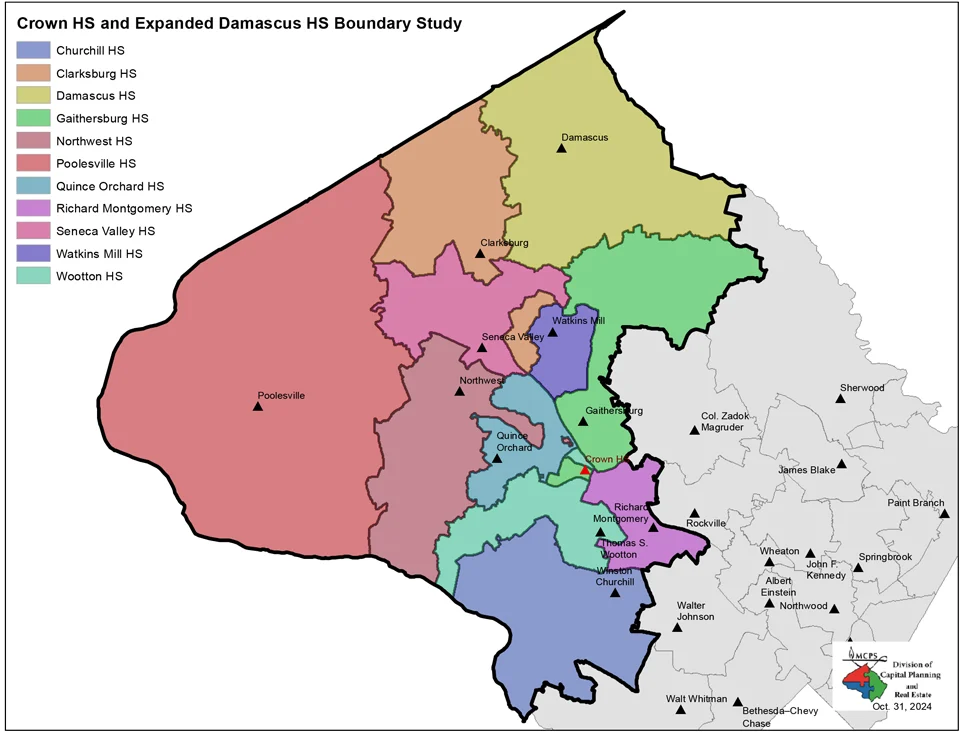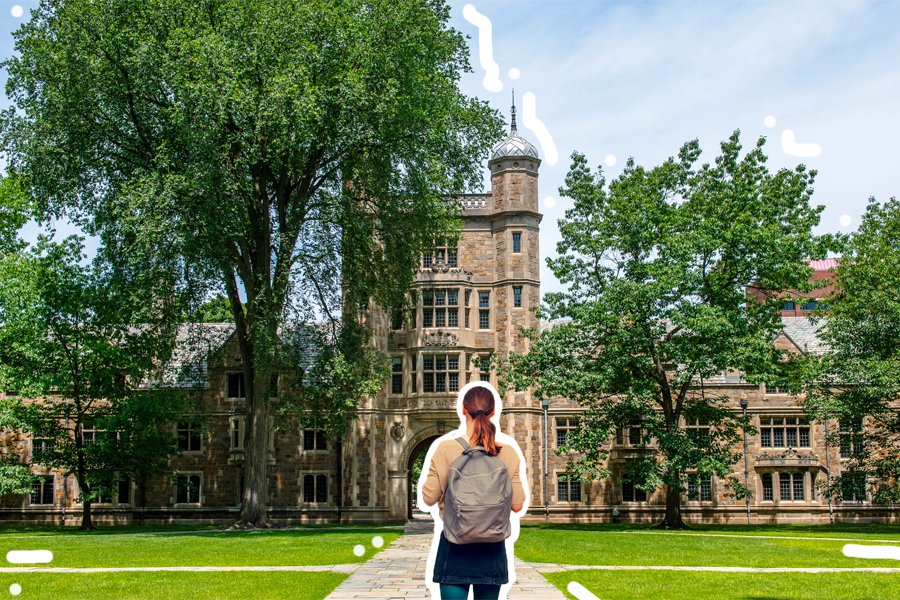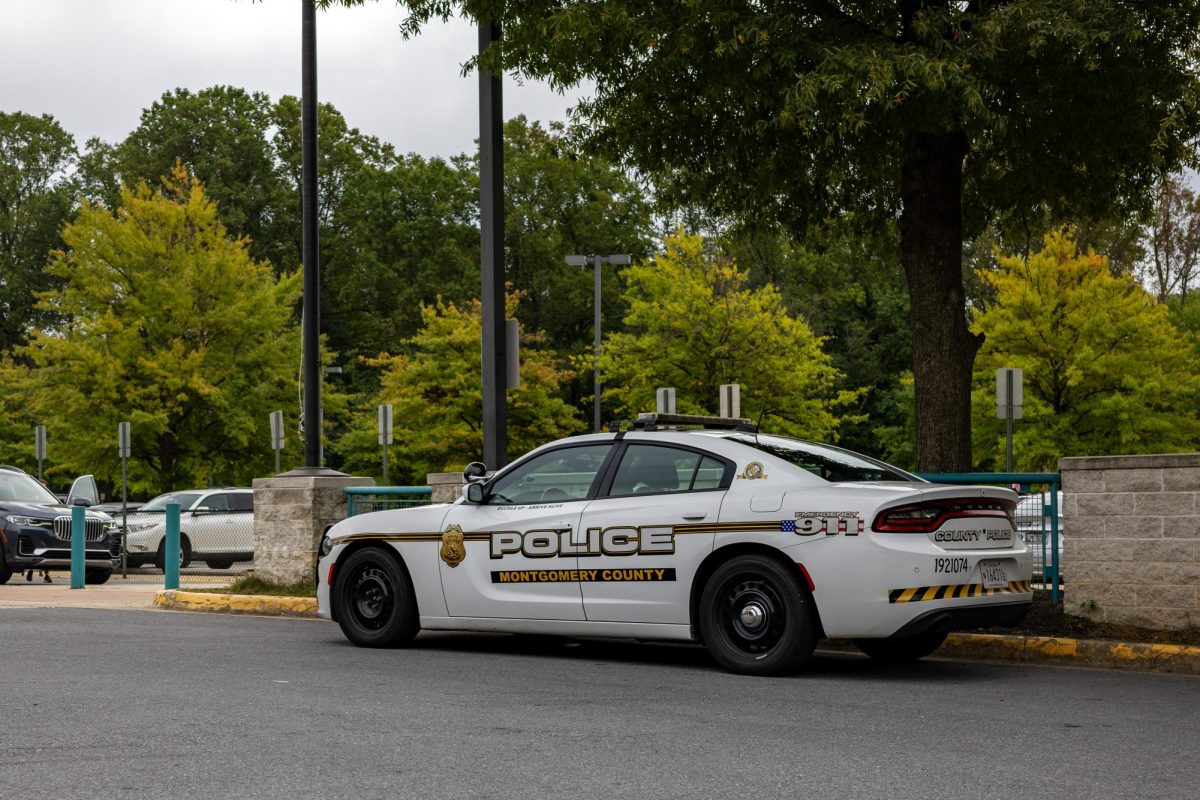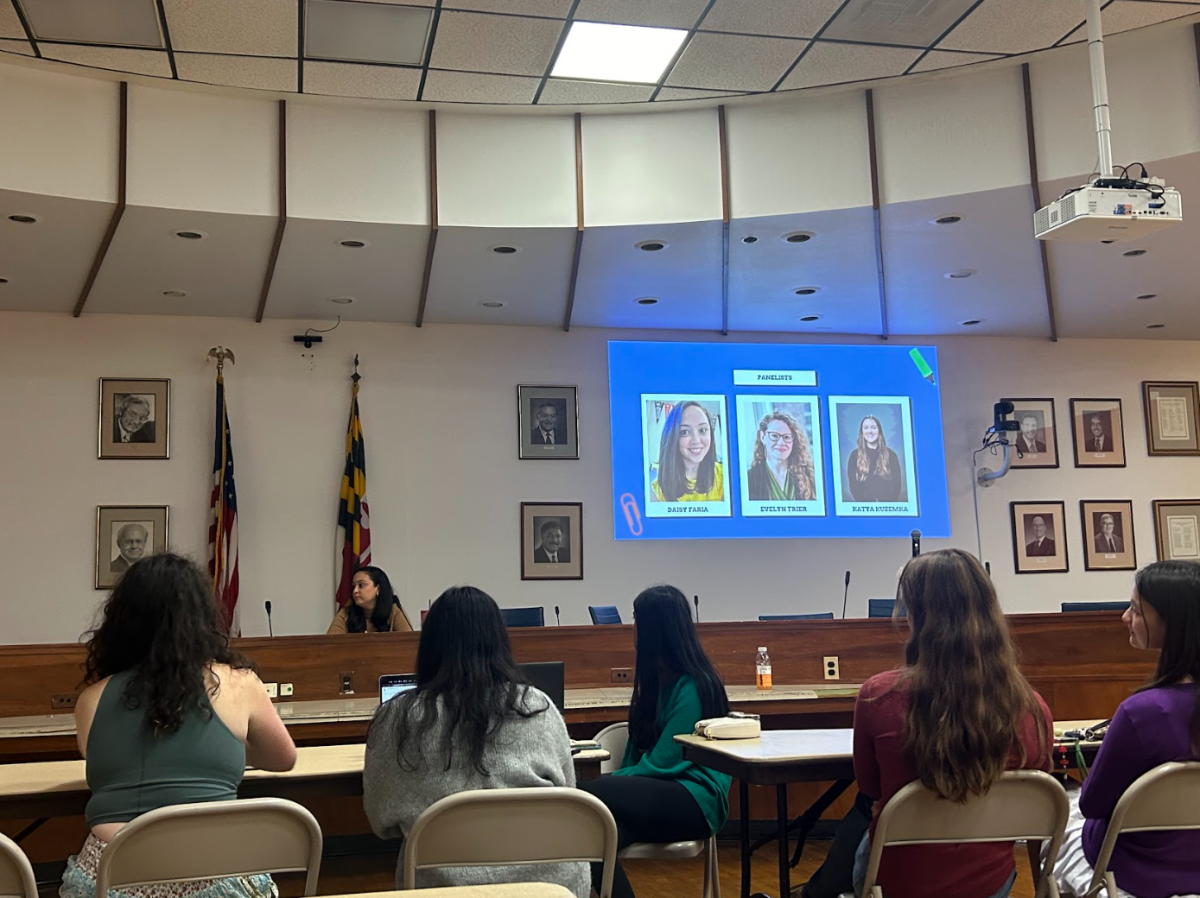The MCPS Board of Education held a meeting to vote on several important bills and resolutions, May 23. Among the bills on the docket was a student wellness resolution, which did not pass, receiving a vote of 3-5.
The resolution aimed to establish more student wellness time in MCPS and comprised of two sections. The first section proposed creating daily wellness time in the school day, which could mean a free period for students to catch up on schoolwork, engage in well-being and mindfulness activities or meet with mental health staff. The second section of the bill would allocate one wellness half-day to each quarter of the school year.
Sophomore Eliza Lowe believes an MCPS needs to prioritize student wellness, not just through Bridge to Wellness centers in schools, but also through implementing new initiatives to prevent emotional exhaustion.
“I would really like to see more wellness periods or half days because, for example, at Whitman, so many people have such rigorous academic expectations, and it gets stressful,” Lowe said. “Sometimes we just need a little bit of time for a break to decompress or even to catch up on work.”
Student Member of the Board Sami Saeed presented the wellness resolution to the Board of Education towards the end of the meeting. If approved, MCPS would pilot the resolution in a few selected middle and high schools for the 2024-2025 school year before considering countywide implementation in the 2025-2026 school year.
Board members were open to the idea, but had some disagreements with the resolution as a whole. A point of contention during the meeting was that some schools already have effective wellness programs in place. Saeed argued that the resolution was vital, as every MCPS school should have a student well-being program.
Additionally, several board members believed that only some MCPS schools would implement quarterly half-days for wellness, as past attempts at countrywide wellness holidays were unsuccessful. Whitman ASL teacher Cathy Horowitz understands that implementing an ambitious bill like this could be logistically challenging.
“There are a certain number of days we have to be in school according to federal laws,” Horowitz said. “If Montgomery County could somehow incorporate wellness into our days at school creatively, that could help massively.”
The CDC reports that adolescent mental health continues to worsen each year. Poor mental health can significantly impact various aspects of a teenager’s life, including their school performance, grades, decision-making and overall health.
Whitman Social Worker Julian Smith believes in the importance of wellness and asserts that the Whitman initiatives have successfully helped combat mental health struggles for many students.
“Health and wellness, physically and mentally, is the groundwork for success in any activity in life,” said Smith. “At Whitman, we’ve been able to incorporate our Bridge to Wellness program that has been able to help so many students.”
Saeed heavily promoted the resolution and urged students to testify at the Board of Education meeting to convince the members to pass it. Despite these efforts and removing the clause mandating wellness half-days to increase support in the board, the resolution did not pass.
“Sadly, my resolution to create wellness days and ensure best practices for wellness time in school was not passed by the Board of Education in a 5-3 vote,” Saeed wrote on Instagram. “It’s important to acknowledge that the Board is a democracy, and voting is an important way to ensure everything passed is in the will of the full Board.”






















Sreemati Mukherjee • May 31, 2024 at 9:52 pm
A well written article! Calmly expressing the opposite points of view without using cunning terms or phrases that would bias the reader.
I myself believe that there should be regular wellness period ( or periods) in school. The health of mind and body, the knowledge of help, the knowledge of whom to approach for help, the feeling of not being alone but having the community’s support…. this should be a weekly, repetitive event in school, a time set aside for our teenagers in their vulnerable and sensitive period of life.